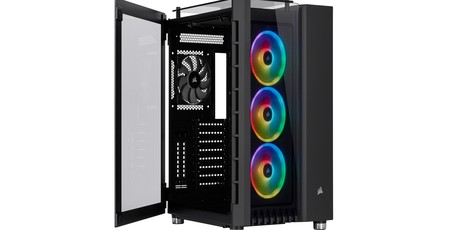
Performance Analysis
We tested the Crystal 680X with the roof in both positions, and it didn’t actually make any tangible difference to the thermal results. The roof dust filter was installed in both tests, since this is how we’d recommend settings things up at home, and the fans were run at full speed as usual.
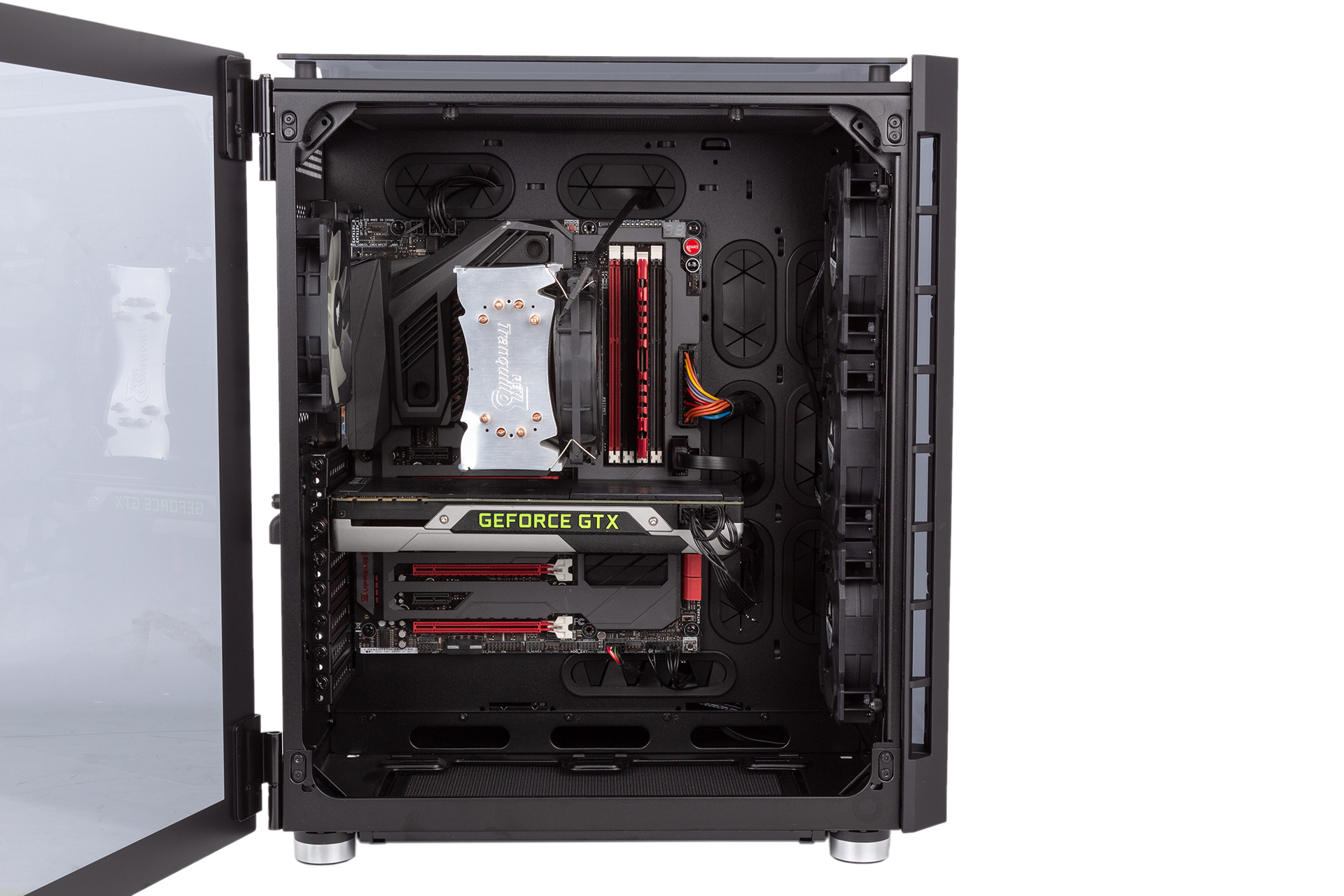
Performance for both CPU and GPU is very much mid-league. You might expect a little more from a case with four fans and fairly open panels, but overall the results aren’t bad, and we think Corsair has done a decent enough job maintaining airflow given how much glass there also is. It’s not a chart topper, but the 680X doesn’t suffer in the same way the low-noise 678C did in our testing.
Things aren’t too bad in terms of noise either, though you’ll want to ensure your CPU and GPU coolers are up to scratch here too, as there are plenty of places for noise to escape from.
Conclusion
Starting with the good, the 680X’s compartmentalisation allows for very easy usability; regardless of what hardware you need to install, service, or swap, you won’t have to spend very long doing so. The overall aesthetic is good, at least to our eyes, and the integrated RGB lighting is handled very well by both hardware (Lightning Node Pro) and software (iCUE). Features like USB Type-C and vertical GPU support keep things modern, and there’s ample scope for expanding the cooling via air or water. With so much space and clearance, even very high-end components shouldn’t struggle to fit inside. Performance is decent enough, but as ever there’s room for improvement here both in terms of airflow and noise.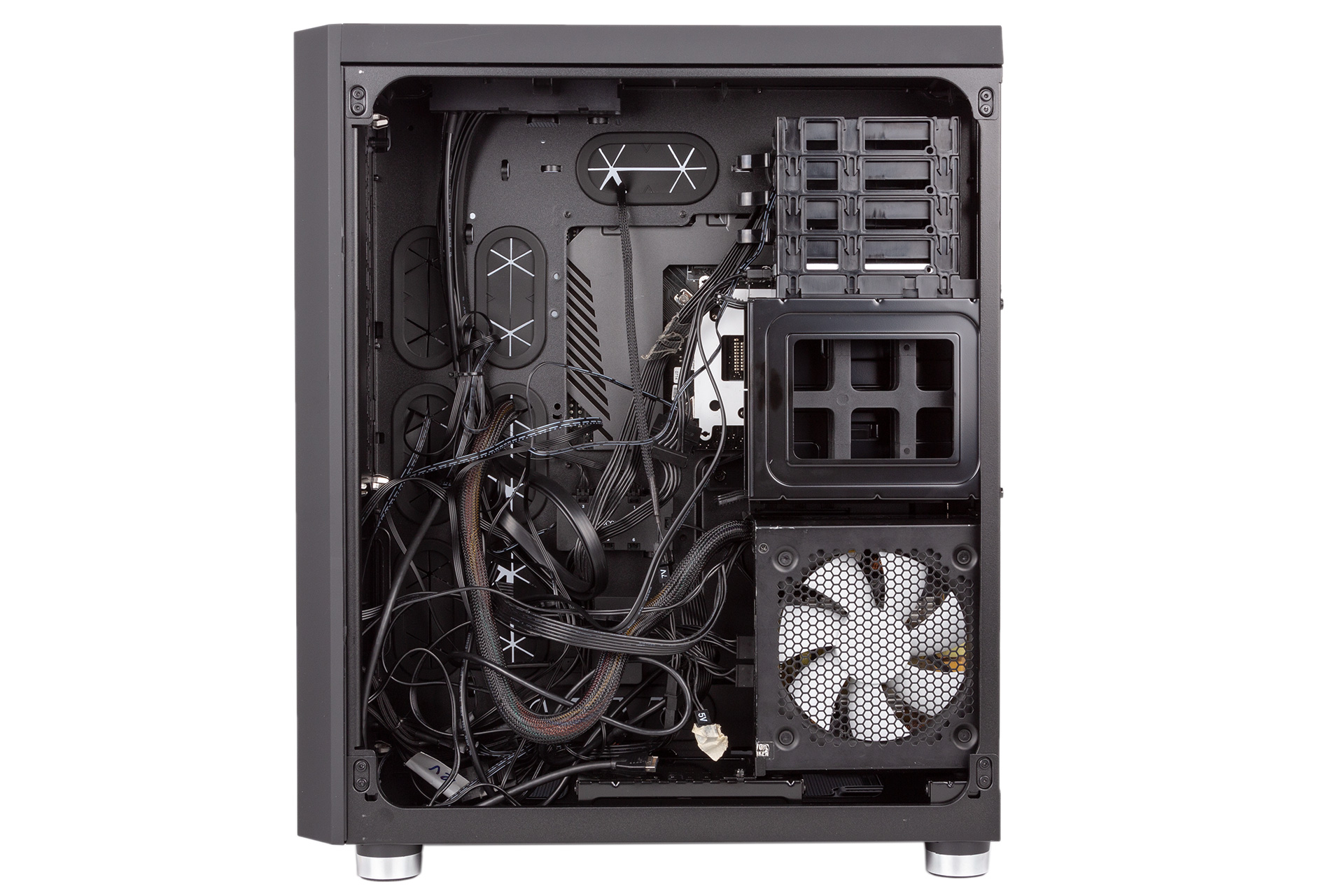
There are negatives, however. The plastic used on the front and roof feels cheap, and similarly the drive cage mechanisms are flimsy and not what you’d normally expect at £220. Speaking of, the price really is very high. Of course, three LL120 RGB fans and a Lightning Node Pro controller cost £90 alone at retail, but considering Lian Li’s O11 Dynamic is almost half the price of the 680X, that RGB really comes at a heavy cost. The cable management and drive mounting solutions also feel a little lazy given how much space Corsair has to work with, and we’d like to see more of a nod towards custom water-cooling than just radiator mounting points.
Because of how much of the price is given over to the RGB fans and controller, these really have to be your primary reason for purchasing this case. If you’re already set on a Corsair ecosystem build, you can certainly make a great looking system (as we already did), and the 680X then makes a lot more sense. But as a standalone product, the £220 price tag is too high to earn it a general recommendation.

MSI MPG Velox 100R Chassis Review
October 14 2021 | 15:04

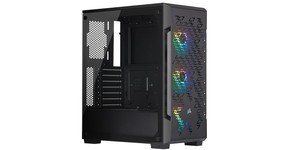
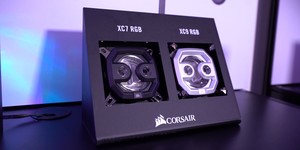





Want to comment? Please log in.